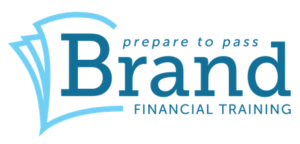If you envy those rare types who seem to have an exceptional memory and who – seemingly effortlessly – amass encyclopaedic levels of information, while we mere mortals forget the name of someone we met last week, you’re far from alone, says the Brand Financial Training team
This post was originally published on the Brand Financial Training Blog and has been reproduced here with their permission. All content © Brand Financial Training.
The good news is that while the fabled ‘photographic memory’ may be something of a myth, brains can be trained, and memory improved, in the same way we can strengthen any muscle.
How does memory work?
Scientists are always making fresh discoveries about memory, after some two thousand years of endeavour in this field. Just three years ago, for example, UK scientists won a major neuroscience prize for their work on memory, which discovered a protein in the brain that plays a significant role in memory loss and formation.
And while there remains much to learn in this fascinating area, we do know there are essentially three basic elements to memory processing: encoding, storage and recall.
Encoding takes place when the brain notices something and perceives the sensory details such as the sounds, sights and smells of an experience as you interpret it.
You probably already know that there are also two kinds of memory: short-term and long-term. The former is where you store information before it’s either dismissed or transferred to the long-term memory.
Train your brain
But can you train your brain with memory techniques so that you can store and retrieve crucial information when you need it most, e.g. in an exam situation?
We reckon that you can, but with so many techniques around, knowing which ones to choose can seem frankly bewildering.
Try these techniques
1. Memorising Numbers
There are various ways of doing this. The Dominic System, for example, invented by eight-time world memory champion Dominic O’Brien, is a way of recalling long numerical sequences. It works by converting numbers into letters and then images, which are easier to remember. There are several ways of converting digits into letters, such as the Major System, which converts numbers into consonant sounds, and then into words with the addition of vowels.
Under the Dominic System, though, the numbers one to nine are assigned letters of the alphabet from A to N. So the number 11, for example, becomes AA, which in turn can be recalled by thinking of an image of Andre Agassi playing tennis. Or 33 is Charlie Chaplin, CC. Meanwhile, the number 3311 could become a mental image of Charlie Chaplin playing tennis.
2. The Loci Method
Loci is the plural of the Latin word locus, for place or location. This is a way of remembering things by placing each item you wish to recall on a point along an imaginary journey. Remember this information in a particular order by retracing your ‘steps’ along the same imaginary route. That could lead, for example, through your house, with each location along the way being a familiar spot such as your kitchen. Each item on the list of things you want to recall is then associated with a place.
This technique is also known as a ‘memory palace’, with some believing it to be the most effective memory technique there is. And it’s how mental athletes perform astonishing feats of recall.
3. Lifestyle and Memory
Finally, it’s probably no surprise to learn that enhancing your overall health, for example with better sleep, frequent exercise and a good diet, will all improve the health of your brain, including memory. (As well as, of course, your physical health, so it’s a double win.)
Not only will memory overall be improved, but memory loss can also be prevented or slowed down.
We’ll be looking at other memory techniques, and how they can help you prepare for your finance exams, in the months ahead. So remember to check back here regularly!






























